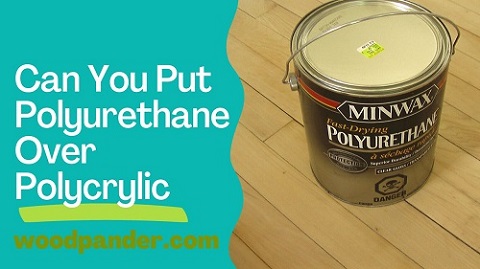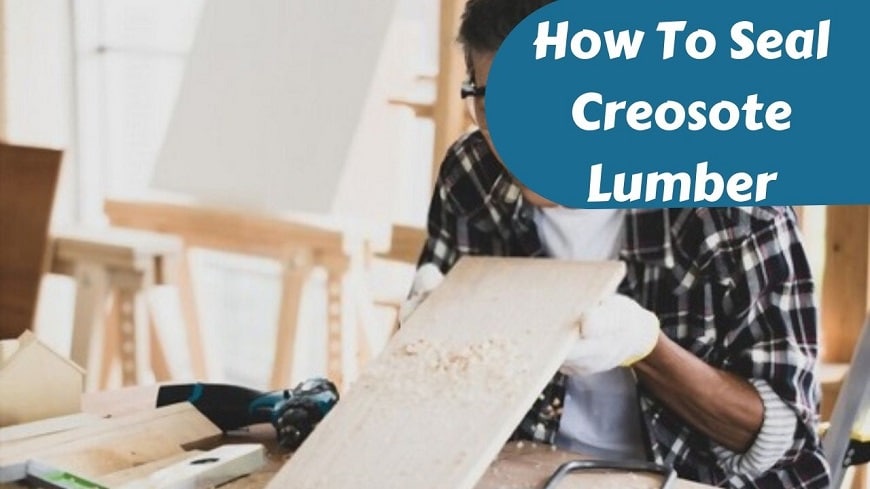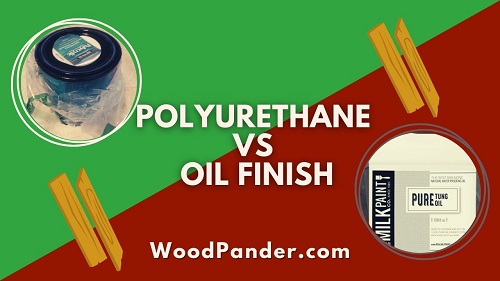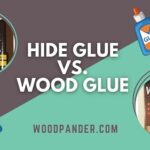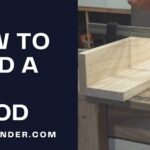Rustoleum and Polyurethane are two popular names if you’re looking for a protective coat for your upcoming wood project. But it’s difficult to identify which one is better than the two. Perhaps our little guide can help you a lot.
What’s the difference between Rustoleum clear coat vs Polyurethane?
The main difference between Rustoleum clear coat and Polyurethane is their type of application. Where Polyurethane is used mainly on wood, Rustoleum is applied on metal or stone surfaces. As a result, they have distinct differences in efficiency for a woodworking project.
However, there are more differences between these two coats, and you need to know each to find the most suitable one for your carpentering job.
Let’s dive into the head-to-head comparison!
Table of Contents
- Quick Comparison Table Between Rustoleum Clear Coat vs. Polyurethane
- Related Questions
- Shine & Protect Your Wood With Rustoleum Clear Coat Or Polyurethane
Quick Comparison Table Between Rustoleum Clear Coat vs. Polyurethane
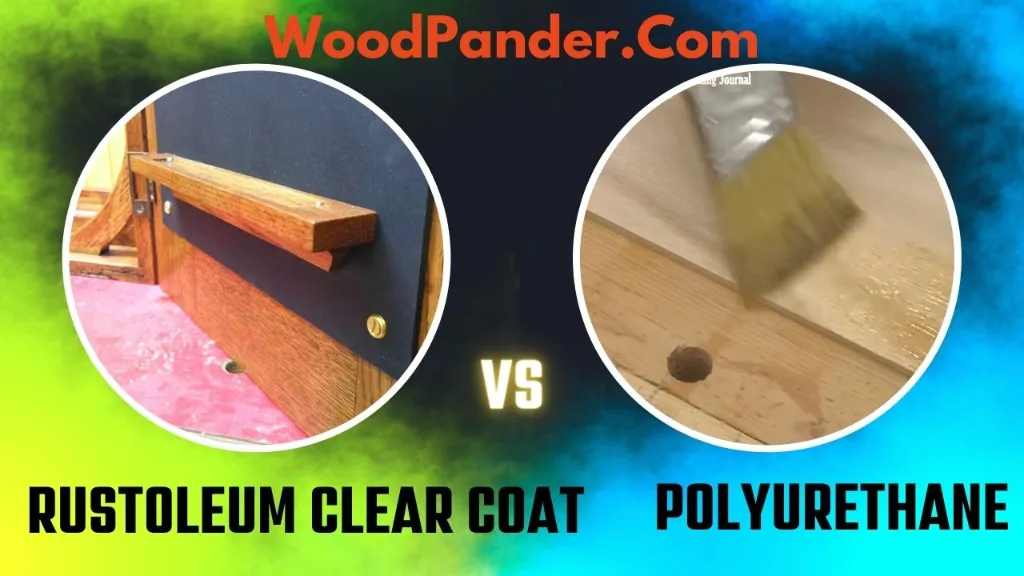
Before diving into the details, take a close look at this quick comparison table.
| Differences | Rustoleum Clear Coat | Polyurethane |
| Type Of Coating | Acrylic | Liquid plastic |
| Heat Resistance | Not heat resistance | Heat resistance |
| Durability | Good durability | Highly durable |
| Ease Of Application | Easy to apply | Tricky to apply |
| Drying Time | Quick drying time | Lengthy drying/curing time |
| Formation | Water-based | Available both in oil-based and water-based |
| Suitability | Best for metal projects | Best for woods |
See Also: Polyurethane vs Oil Finish.
What Is a Rustoleum Clear Coat?
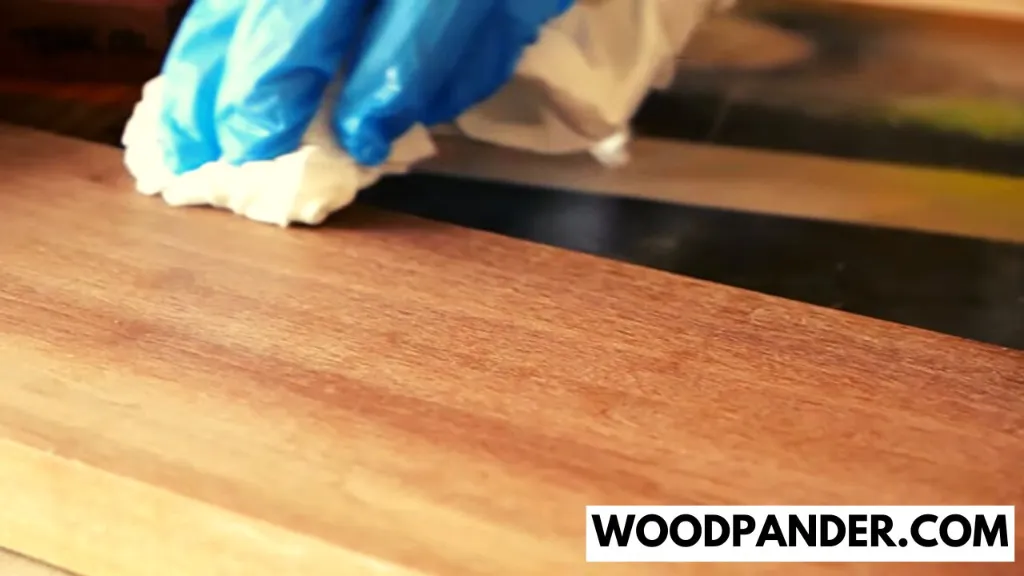
Rustoleum clear coat is a transparent finish that protects against rust, corrosion, chipping, and tarnishing. You can use it alone or as a sealer on top of the other coatings. Rustoleum is suitable for on any interior/exterior surface, including –
- Wood
- Metal
- Paster
- Unglazed ceramics
- Masonry etc.
Pros
- The non-yellowing formula offers a crystal-clear look
- Sticks to wood great with proper prep work
- Dries quickly and offers a glass-like finish
- Great for over-painted wood
- Affordable price than other coatings
Cons
- Not best for stained wood products.
Can you use Rust-Oleum on wood?
Yes, Rust-Oleum offers a range of products that can be used on wood surfaces. They have specific paints and finishes designed for wood, including primers, paints, stains, and protective coatings. It’s important to select the appropriate Rust-Oleum product based on your specific wood project for optimal results.
Rust-Oleum 2X Matte Clear Review:
Rust-Oleum 2X Matte Clear provides a smooth and matte finish, perfect for achieving a non-glossy look on various surfaces. It offers excellent coverage, easy application, and durable protection, making it highly recommended for those seeking a matte clear coat.
See Also: Hide Glue vs Wood Glue.
What Is Polyurethane?
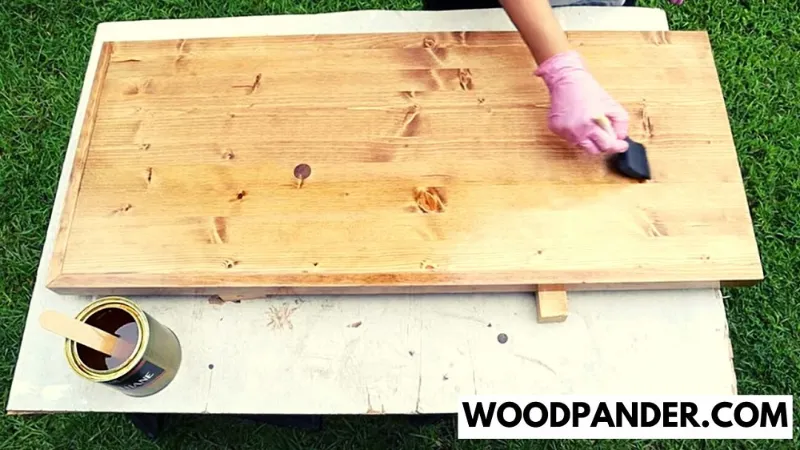
Polyurethane is basically a plastic that forms a liquid until dry. It comes with oil- and water-based options, offering you a variety of finishes on wooden surfaces from satin to glossy.
Water-based Polyurethane is best for use on desks, side tables, bookcases, picture frames, etc. Otherwise, oil-based is best for kitchen tables, doors, or hardwood floors due to its excellent resistance to water and heat. Except for wood, Polyurethane is best suitable for.
- Floors
- Aircraft
- Vessels
- Pipelines
- Industrial equipment
- Metal roofs
Pros
- Great for newly painted furniture
- Provides a super smooth, clean finish
- Highly durable and waterproof
- Easy to use even cleaning
- Cling to any surface
Cons
- It needs to provide a clear color.
Rustoleum vs. Polyurethane Detailed Comparison
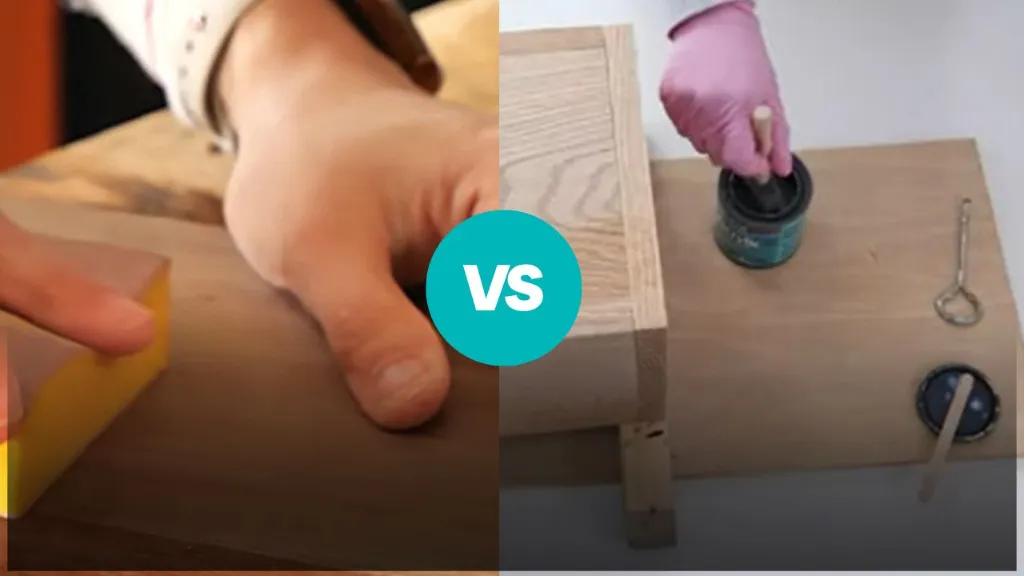
Let’s go through the detailed comparison to get a better idea about both finishes.
1. Purpose
Your woodworking project can be completed with the right finish to fulfill your purpose.
- Rustoleum Clear Coat
The main purpose of a Rustoleum clear coat is to finish a painted surface. Its Acrylic formula offers an ultra-hard and high luster finish with glowing.
- Polyurethane
Whereas, Polyurethane is used to coat and seal a wood surface. It offers better protection against the weather to protect the wood from scratches, water, and heat.
Winner: Polyurethane
2. Application
Though both the finish can be applied to wood, they have a distinct difference in the ability to work on wood.
- Rustoleum Clear Coat
Clear coats can be applied on surfaces such as wood, glass, metal, stone, etc. It is usually sprayed on the surface and is best for crafting. The Rustoleum clear coat gives the base color a glossy surface. That’s why it’s mostly used for automobile application over metallic paint or coat color.
- Polyurethane
Besides, Polyurethane is applied only for wood surfaces such as wood floors, wooden furniture, cabinets, etc. Polyurethane is applied through a brush or a pad. Due to its durability, it is used for any wooden floor.
Winner: Polyurethane
3. Durability
The finish you apply on the wood surface should last long and protect your woodwork from tough conditions.
- Rustoleum Clear Coat
Clear coats provide medium-range durability. But it’s not highly durable and doesn’t offer protection for extended periods. So you have to be aware of scratches and splits.
- Polyurethane
Polyurethane comes with long-lasting properties. It’s waterproof and dries harder to give high-quality durability. It adds a protection layer over the wood surface from scratches, water, and more danger. That’s why it is mainly used for wood.
Winner: Polyurethane
4. Wood Protection
Wood protection is something that everyone expects from protective coats. The better wood protection the coat will provide, the more you can rest assured.
- Rustoleum Clear Coat
Rustoleum clear coat gives some protection from the environment to your woodwork. It’s water-based and thus does not provide wood protection as Polyurethane.
- Polyurethane
The tough coat of Polyurethane gives ultimate wood protection both indoors and outdoors. It forms a barrier between the wood surface and the external environment. As a result, your wood surface remains completely safe from any damage from water, heat, chemicals, etc.
Winner: Polyurethane
5. Appearances
While buying a clear coat look for a transparent coat if you don’t like the dark or yellowish amber cast over your woodwork.
- Rustoleum Clear Coat
Rustoleum clear coat comes with a non-yellowing formula. So you don’t have to worry about your wood finishing turning yellow in the future.
- Polyurethane
Both oil-based and water-based Polyurethane polyurethane clear coat for wood has a slightly amber cast. So it makes the white object look slightly yellow, and the colored object appears slightly darker.
Winner: Rustoleum clear coat
6. Drying Time
Drying time is another crucial consideration as you’ve set your project timeline. So depending on whether you need a fast-cure finish. However, your choice can vary project by project
- Clear Coat
Rustoleum clear coat provides a fast drying and hardening time. It dries to the touch within 20 minutes.
- Polyurethane
Polyurethane usually has a longer drying time compared to a clear coat. It takes 12 to 24 hours to dry completely on the wood surface.
Winner: Rustoleum Clear Coat
7. Smells
Some people don’t like the strong fumes of the coats. Also, strong fumes can make you uncomfortable and troublesome if you do not have properly ventilated space.
- Rustoleum Clear Coat
The Rustoleum clear coat is water-based, so its smells are not as strong as poly and dissipate more quickly. If your area is not well-ventilated, no issues occur while applying a Rustoleum clear coat due to its bearable fume.
- Polyurethane
It smells pretty strong, and thus you must apply it on a well-ventilated area.
Winner: Rustoleum Clear Coat
8. Number of Coating
The more coats you apply over your woodwork, the faster the finish will run out, and you might need to buy another one.
- Rustoleum Clear Coat
Rustoleum requires applying fewer coats than Polyurethane, and thus you can use it for more time.
- Polyurethane
Polyurethane requires multiple coatings to achieve the desired smoother finish.
Winner: Rustoleum Clear Coat
Related Questions
What is the strongest clear coat for wood?
Polyurethane is the strongest clear coat for wood because these synthetic coatings are highly durable, water resistant, and withstand tough conditions. So it’s best for ensuring wood protection.
How many coats of Rustoleum clear coat should I use?
Only one coat of Rustoleum clear coat is enough for your wood project. But if you want to recoat it, you can apply the second coat after the 4 hours of the first coating.
Is Rust-Oleum 2X Clear Gloss waterproof?
Yes, Rust-Oleum 2X Clear Gloss is waterproof. It provides a durable, protective finish that resists water and other liquids, making it suitable for both indoor and outdoor applications.
Is clear coat polyurethane?
Yes, clear coat is typically made of polyurethane. Clear coat is a transparent coating that is commonly used to provide a protective and glossy finish to various surfaces, including wood, metal, and automotive finishes. Polyurethane is a common ingredient used in clear coats due to its excellent durability and resistance to wear and tear.
What is the best clear coat for wood?
The best clear coat for wood depends on various factors such as desired finish, durability, and application method.
Some popular options include Minwax Polycrylic, Varathane Triple Thick, General Finishes High Performance, Rust-Oleum Ultimate Polyurethane, and Deft Interior Clear Wood Finish.
See Also: Anchor seal Vs Anchorseal 2.
Shine & Protect Your Wood With Rustoleum Clear Coat Or Polyurethane
Finally, we reached the end of our Rustoleum clear coat vs. Polyurethane. Hopefully, our detailed comparison of these two protective coats will help you pick the most suitable one.
Rust-Oleum is the best choice if you want a transparent protective coat for your painted woodworking project. But if you emphasize durability and wood protection over appearance, pick Polyurethane without hesitation.
Best of luck!


